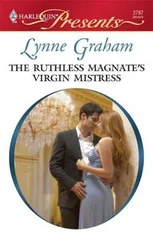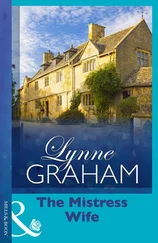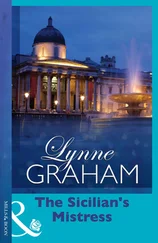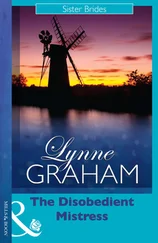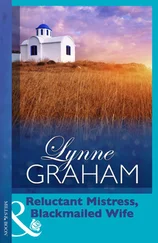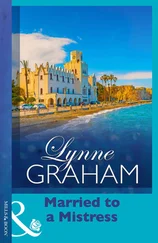‘Thank you…I’d love to do that,’ Harriet confided.
‘Shall I tell you what I remember best about your mother?’
Harriet nodded very seriously and offered to pour the tea.
Watching her take charge of the tea tray, Joseph Tolly smiled and settled himself more comfortably into his shabby fireside chair. ‘Your mother must have been about fourteen when she decided she didn’t want to be known as Agnes any more, and she started calling herself Eva instead.’
Harriet blinked in surprise, for she had not known that her parent had chosen that name for herself. Agnes? But then all she had ever known of Eva’s history was the absolute basics: that her mother was the daughter of a small farmer who had been widowed while she was still a child. Her older teenaged brother had been killed in a tractor accident.
‘What a rumpus she caused!’ Tolly chuckled. ‘The nuns at the convent school had no tolerance for girls’ fancies, but your mother defied the lot of them—even the cantankerous old priest that we had then.’ His expressive eyes invited her to enjoy his warm humour. ‘Unfortunately I think she paid the price for it, because your grandfather took her out of school early and she was a bright girl.’
‘What was my grandfather like?’ Harriet prompted eagerly.
‘Dermot Gallagher had a mean temper on him,’ Joseph told her, with a look of honest apology at having to make that admission. ‘He wasn’t a lucky man, and his disappointments soured him and made him a harsh parent. He wouldn’t let your mother have a life like other girls, so when she ran away nobody was that surprised. If she wasn’t working on the farm, he hired her out to work for other people and kept her wages.’
Harriet was sobered by what she was learning, and finally appreciated why her mother might have preferred to leave that distant past buried. ‘I wish she’d told me what it was like for her then. I had no idea her childhood was that tough.’
‘Your cousin, Kathleen, once told my late wife that when your mother tried to stand up to Dermot he would threaten to have her locked up with the nuns. That may sound unbelievable to you, but right up until twenty years ago certain convents ran commercial laundries staffed by young women who had been put in their charge because they were supposedly a threat to decent society. More than one disobedient daughter ended up in those unhappy places, and some of them never came out again.’
Harriet lost colour when she made the connection. ‘You’re talking about the Magdalene Laundries?’
‘Yes.’ Tolly nodded grave confirmation. ‘Life was very different here then. No one would have dreamt of interfering between a father and his child.’
‘She must have felt so alone…’ Harriet thought that it was hardly surprising that when Eva had finally escaped her father’s threats and restrictions, partying had held rather more appeal for her than parenting.
‘Hasn’t Eva the life now, though?’ Joseph remarked in a determinedly cheerful change of subject that suggested he was more comfortable skimming the surface of her mother’s past. ‘I saw a picture of her in an old magazine last year. She looked like a queen in a ballgown at some charity do. She’s come a long way from the young woman who used to help out in the village shop.’
‘Could you give me the names of any of her schoolfriends?’ Harriet suspected that the key to discovering her father’s identity would most likely be found amongst her mother’s contemporaries.
‘I was acquainted with the family situation, but not with much else. We were of different generations.’ His eyes veiled, he served her with a mouthwatering wedge of chocolate cake, and for a few minutes there was silence as Harriet did justice to it.
‘I imagine that there was quite an uproar after my mother ran away.’ Harriet was thoroughly relaxed, and happy to match Tolly’s frankness with her own. ‘I’m very keen to find out who my father was.’
Clearly unprepared for that admission, Joseph looked startled. ‘But surely your mother—?’
‘No…she’s always refused to say,’ Harriet admitted ruefully.
‘But you can hardly go around asking awkward questions of people you don’t even know,’ the old man pointed out. ‘You could cause offence, and you might also cause trouble by casting suspicion on an innocent party. I would strongly advise you to speak to your mother again.’
Harriet suppressed a heavy sigh. She was not close to Eva, and worked hard at conserving the relationship she did have with her. The last time she had tackled the older woman on the score of her parentage Eva had taken strong umbrage.
Joseph gave his guest an anxious appraisal. ‘I think you also need to ask yourself what you’re hoping to get from the information you seek. Your father may be a man who let your mother down when she most needed his support. He might have no interest in knowing you.’
‘Yes, I accept that.’ Harriet was, however, studying her companion with increased interest. The very urgency with which he spoke made her wonder if he knew rather more about her background than he was willing to admit. ‘Were there rumours at the time?’ she pressed more boldly. ‘I mean, people must’ve talked.’
‘People always gossip, and rarely with kindness or commonsense,’ Tolly responded steadily. ‘It would be wrong of me to repeat idle chatter. If your mother was seeing anyone it was kept very much a secret.’
Harriet let the subject drop there, guiltily conscious that she had said rather too much for so short an acquaintance, and listened as her host talked gladly about less contentious issues. It had gone nine when she drove home in a deeply pensive mood. What did she hope to achieve from establishing the identity of her father? She knew that she had a deep need to know exactly where she had come from. But wasn’t it more than that?
Harriet had never really felt that she belonged anywhere. In the same way she had never known what it was to have a parent who was absolutely hers…at least not for long. As a child she had been hurt and confused, because she’d rarely seen the mother she adored. She had then had to adjust to the cruel reality that Eva could somehow manage to be a full time parent for her younger son and daughter. But perhaps it had hurt most of all when Harriet had finally discovered that the man she had grown up believing to be her father was not her biological father after all.
Eva had been six months pregnant when she’d married Will Carmichael, a research scientist a decade older. Seemingly she had snatched at the chance of a wedding ring and a name for her unborn child. A quiet, studious man, Will had been besotted with his youthful Irish bride, but the union had been a disastrous mismatch. Walking down a London street one day, Eva had been stopped by a talent scout and discovered as a fashion model. Hiring a nanny to take care of her baby, Eva had flung herself into the excitement of fame, fortune and foreign travel. The unequal marriage had disintegrated without fanfare.
Even after the divorce Will had been left to shoulder the burden of raising Harriet while Eva concentrated on her career. And when Harriet was five years old her mother had remarried and become a society wife. The wealthy English businessman with whom Eva had had her younger children, Alice and Boyce, had not encouraged Harriet’s visits to his country home in Surrey. He had disliked such an obvious reminder that his beautiful wife’s past had featured other men, and in the interests of marital harmony Harriet had been virtually airbrushed out of her mother’s life.
Harriet had been thirteen years old when she’d overheard a devastating exchange between Eva and Will on the phone.
‘I wanted to tell Harriet the truth years ago, but you wouldn’t agree,’ Will had been saying, with unusual curtness of tone for so mild-mannered a man. ‘She thinks of me as her father, and finding out that I’m no more her father than the Easter bunny will be a nasty shock! Teenagers are vulnerable, Eva. I don’t care if your therapist believes that coming clean on that score will benefit you; I’m more concerned about how it might affect Harriet.’
Читать дальше

